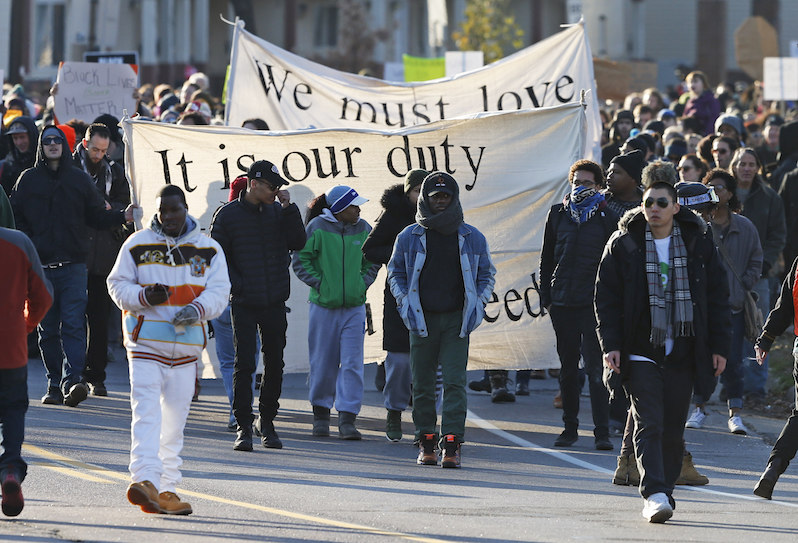Why Black Lives Matter Is the Movement of the Year
The movement's innovative and committed activism has renewed the struggle for racial justice In 2015, no other progressive cause in the United States came close to its perseverance and creativity The movement's innovative and committed activism has renewed the struggle for racial justice. Black Lives Matter activists march in Minneapolis in November. (Jim Mone / AP)
1
2
Black Lives Matter activists march in Minneapolis in November. (Jim Mone / AP)
1
2

Black Lives Matter activists march in Minneapolis in November. (Jim Mone / AP)
Independent journalism is under threat and overshadowed by heavily funded mainstream media.
You can help level the playing field. Become a member.
Your tax-deductible contribution keeps us digging beneath the headlines to give you thought-provoking, investigative reporting and analysis that unearths what's really happening- without compromise.
Give today to support our courageous, independent journalists.






You need to be a supporter to comment.
There are currently no responses to this article.
Be the first to respond.